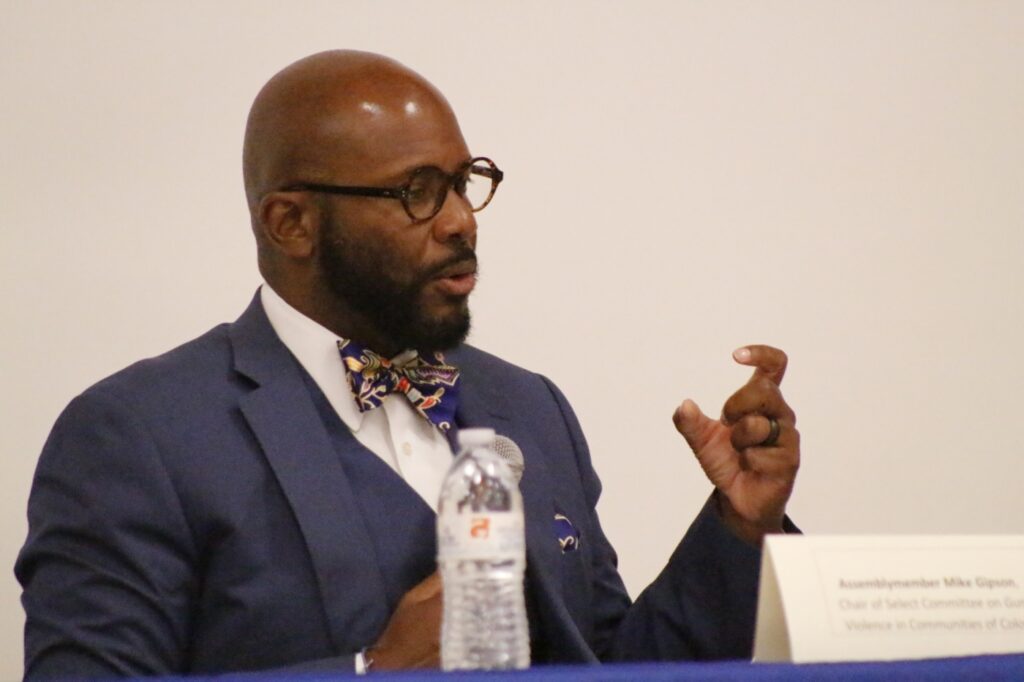
The positions of county sheriff and coroner are too different to be held by one person. That’s why we support Assembly Bill 1608, by Assemblyman Mike Gipson, D-Gardena. It would remove county supervisors’ authority to combine the offices of sheriff and coroner, the situation in 48 of the state’s 58 counties. Of the 50 U.S. states, only three still allow these offices to be combined.
Two cases show why. In 2017 in San Joaquin County, Chief Forensic Pathologist Bennet Omalu and his colleague Susan Parson, both medical doctors, resigned “one day after the release of memos alleging Sheriff-Coroner Steve Moore interfered with death investigations to protect law enforcement officers,” reported KQED. Moore denied the charge. But county supervisors responded by creating the independent chief medical examiner’s office.
And in one of the biggest scandals to strike Southern California, Orange County Sheriff-Coroner Mike Carona — dubbed “America’s Sheriff” — in 2007 was indicted on federal corruption charges. He eventually was convicted of jury tampering and served five years and six months in prison. His indictment led to a 2008 report by District Attorney Tony Rackauckas on the 2006 jailhouse murder of inmate John Derek Chamberlain.
In the summary at the time by Orange County Register columnist Frank Mickadeit, “The report shows that of Carona’s three major duties — being the county’s chief public safety officer, its jailer and its coroner — he failed at the last two. … In many counties, a jailhouse death like Chamberlain’s would be properly investigated by the county coroner. In Orange County, however, the sheriff is the jailer and the coroner. …To have the Sheriff’s Department investigate a jail death is a conflict of interest, which is why the D.A.’s Office handles such deaths here. Except this one. The sheriff refused to turn it over.”
Opposition to the bill comes from the California Statewide Law Enforcement Association, which maintained, “While we certainly understand the author’s intention to ensure fair, complete investigations are conducted relating to the medical examination process, we believe it is best that coroners are left under the jurisdiction of law enforcement. … Coroners play an integral role in the continuity of law enforcement’s ability to serve citizens throughout California.”
Rural counties also have objected that splitting the offices would add heavy costs to their smaller budgets. They have requested an amendment to exempt the 42 counties with less than 500,000 population. That should be considered, but a better number would be under 100,000, for 23 counties.
Deaths of people in police custody in recent years, especially after the murder of George Floyd in Minneapolis two years ago, have put a spotlight on the need for closer scrutiny of officers’ activities. Indeed, police and sheriffs should welcome bifurcating the coroner’s office from that of sheriff to guarantee the integrity of the investigations, and the confidence of the public.
